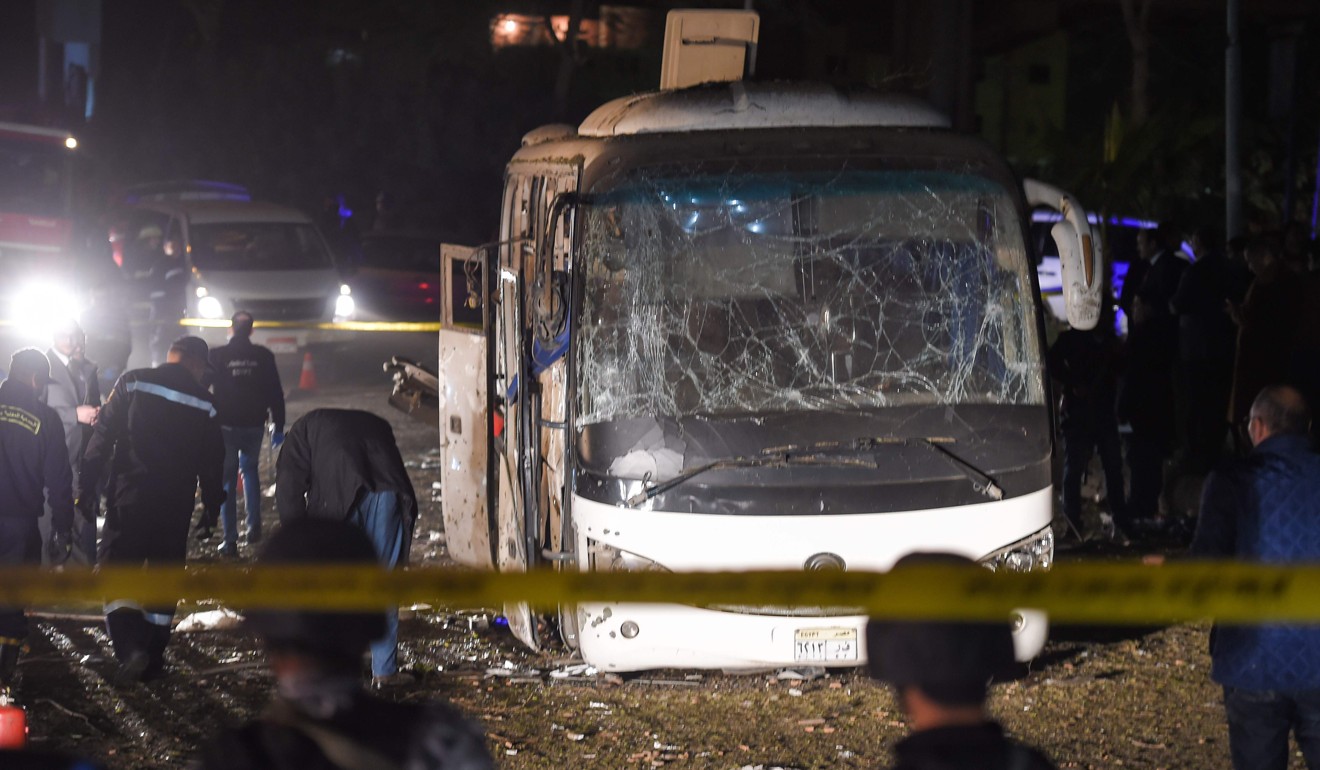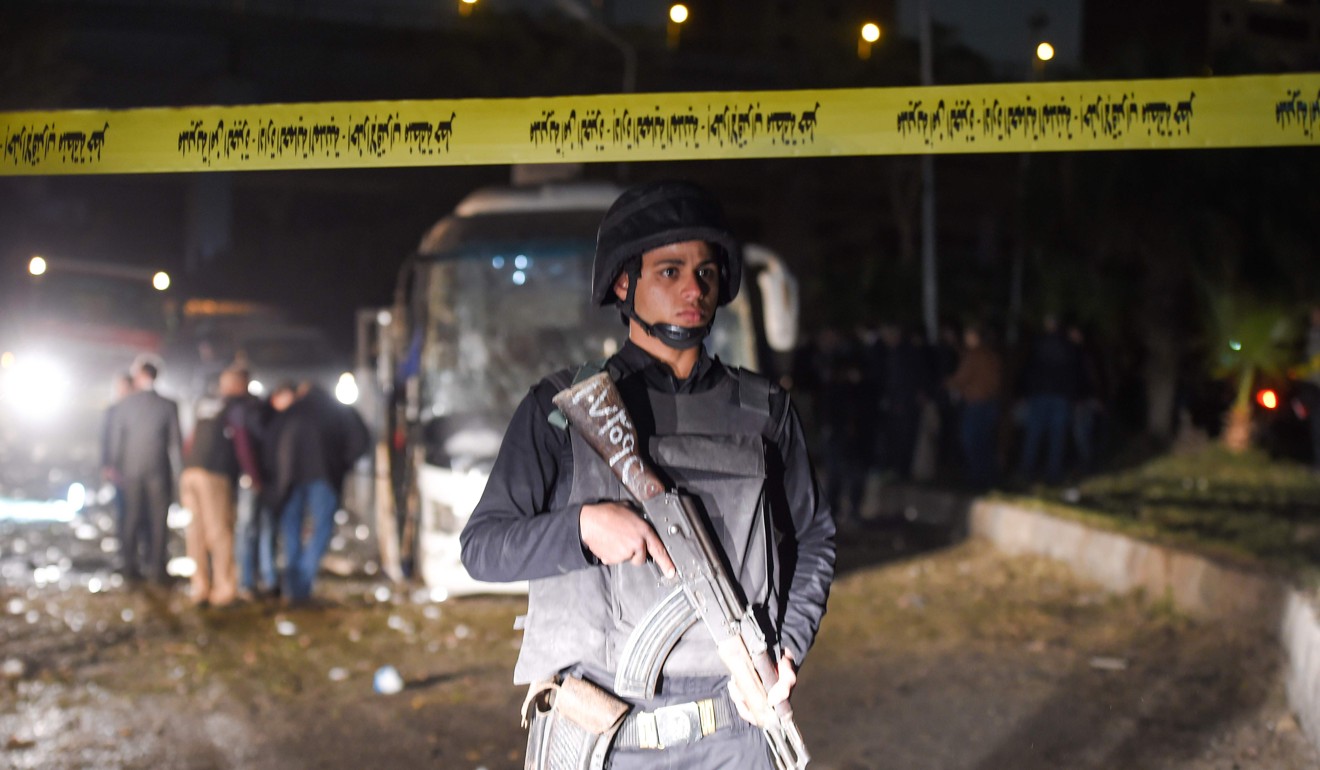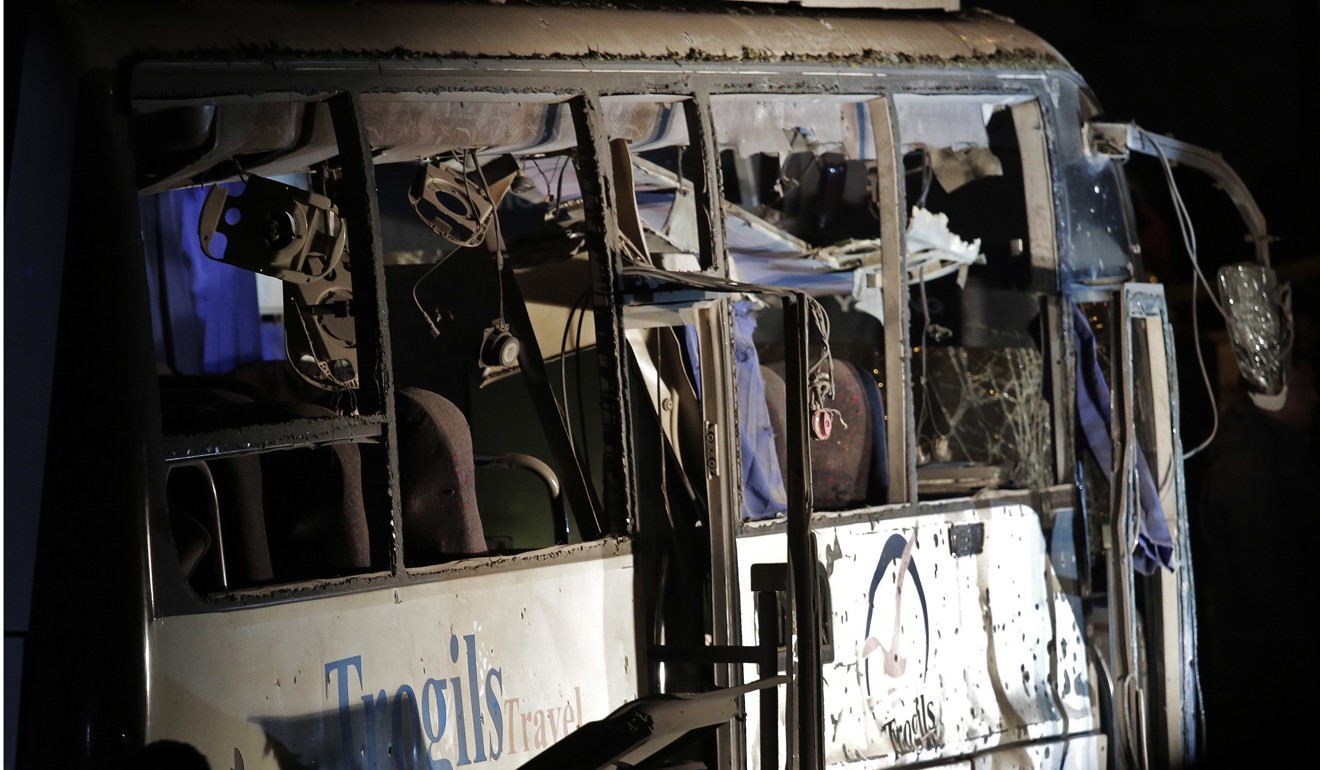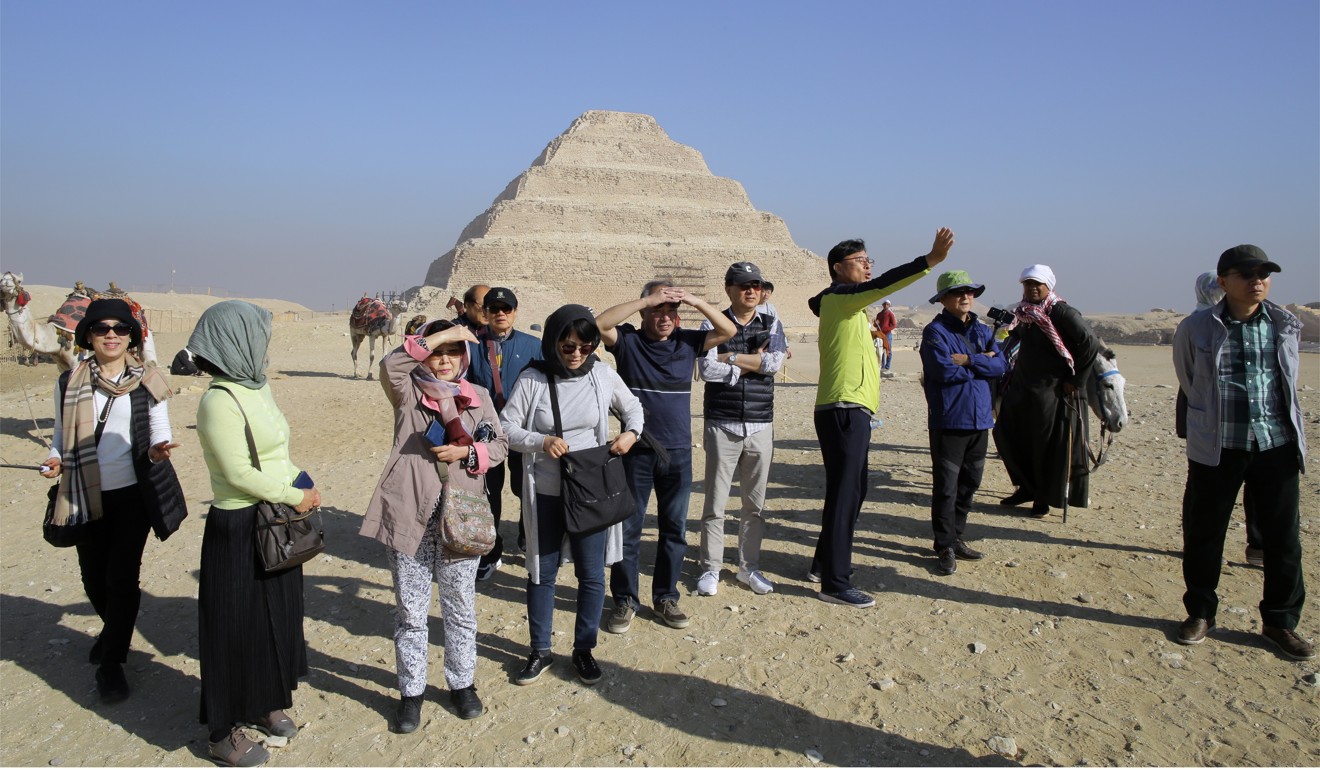
Three Vietnamese tourists and Egyptian guide killed after bomb hits tour bus near Giza pyramids
- Egypt’s prime minister said the coach deviated from the usual route, which is guarded by security forces
Three Vietnamese holidaymakers and an Egyptian tour guide were killed on Friday when a roadside bomb blast hit their bus as it travelled close to the Giza pyramids on the outskirts of Cairo, officials said.
The public prosecutor’s office said 11 other tourists from Vietnam and an Egyptian bus driver were wounded when the home-made device exploded.

The device was placed near a wall along Mariyutiya Street in Al-Haram district near the Giza Pyramids, it said.
The bus was carrying 16 people including 14 Vietnamese tourists, an Egyptian driver and a tour guide, according to the office’s statement.
Armed security personnel quickly cordoned off the area.

The white bus’s windows were shattered and the vehicle was surrounded by soot-covered debris.
Prime Minister Mostafa Madbouli visited the injured tourists in hospital, where he announced that the tour guide had died from his wounds.
“It’s possible at times that an individual incident takes place here or there,” he told journalists. “We have to know that it’s possible that it would be repeated in the future.”
Madbouli urged against “amplifying” the incident as he insisted that “no country in the world can guarantee that its 100 per cent safe”.
“The bus deviated from the route secured by the security forces,” Madbouli told Extra News channel, an assertion also made by the owner of the company that organised the bus tour.
“We have been in contact with the embassy of Vietnam to contain the impact of the incident, and what is important now is to take care of the injured,” the prime minister said.
The bus driver later told media he had not deviated from the route.
Vietnam’s foreign ministry confirmed on Saturday that three of its citizens had been killed in the blast, and that it was working closely with Egypt’s interior ministry to provide help to the injured and to their families.
There was no immediate claim of responsibility for the blast.
The United States condemned the attack.
“We stand with all Egyptians in the fight against terrorism and support the Egyptian government in bringing the perpetrators of this attack to justice,” State Department spokesman Robert Palladino said in a statement.

Egypt’s tourism industry has been struggling to recover from militant attacks and domestic instability following the so-called Arab spring uprising that forced veteran leader Hosni Mubarak from power.
In July 2017, two German tourists were stabbed to death by a suspected extremist at the Egyptian Red Sea beach resort of Hurgada.
In October 2015, a bomb claimed by a local affiliate of Islamic State killed 224 people on a jet carrying Russian tourists as it flew over the Sinai peninsula.
Islamic State gunmen kill seven Coptic Christians in Egypt bus attack
Egypt has since been trying to lure tourists back and spur the lucrative sector by touting new archaeological discoveries and bolstering security around dig sites and airports.
Tourism slowly started picking up. The official statistics agency said tourist arrivals in 2017 reached 8.2 million, up from 5.3 million the year before.
But that figure was still far short of the record influx in 2010 when over 14 million visitors flocked to see the country’s sites.
Egypt has for years been battling an Islamist insurgency in North Sinai, which surged following the military’s removal of president Mohammed Mursi in 2013.

Security forces have since February been conducting a major operation focused on the Sinai Peninsula, aimed at wiping out a local IS branch.
More than 450 suspected extremists and around 30 Egyptian soldiers have been killed since the offensive began, the army said in October.
The pyramids of Giza are the only surviving structure of the seven wonders of the ancient world and a major tourist draw attracting visitors from across the globe.
Additional reporting by Reuters

.png?itok=arIb17P0)